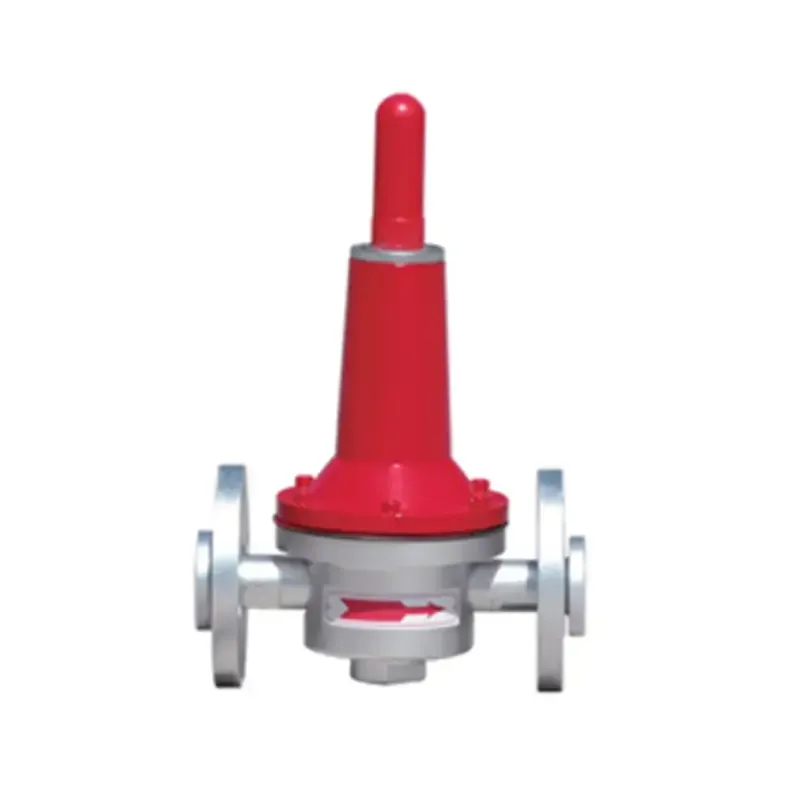
Dec . 29, 2024 02:01
Back to list
shut-off valve
Understanding Shut-Off Valves Functionality, Applications, and Importance
Shut-off valves are essential components in various fluid control applications, serving as critical devices for regulating the flow of liquids and gases in pipelines and systems. Their primary function is to stop or allow the flow of fluid through a system, providing essential control and safety features across multiple industries. This article delves into the functionality, applications, and significance of shut-off valves.
Functionality of Shut-Off Valves
Shut-off valves work by either completely blocking or allowing the flow of fluid through a pipe or tubing system. They can be operated either manually or automatically, depending on their design and the system requirements.
The most common types of shut-off valves include
1. Gate Valves Often used for on/off control, gate valves provide a straight-through flow path with minimal resistance when in the open position. They are typically found in water supply systems and industrial applications.
2. Ball Valves Known for their reliability and durability, ball valves feature a spherical disc that rotates to open or close the flow path. They are preferred for quick shut-off applications due to their ability to seal tightly.
3. Globe Valves These valves are designed for throttling flow and are typically used in applications where precise control is necessary.
4. Butterfly Valves Generally used for larger pipe diameters, butterfly valves use a rotating disc to regulate flow, combining compact design with efficient performance.
5. Check Valves Although not a shut-off valve in the traditional sense, check valves prevent backflow in a system, protecting against reverse flow and potential damage.
Applications of Shut-Off Valves
Shut-off valves are utilized across numerous industries including water treatment, oil and gas, HVAC systems, and chemical manufacturing
. Below are a few key applicationsshut-off valve

1. Water and Wastewater Management In municipal water supply systems, shut-off valves play a vital role in isolating sections of the pipeline for maintenance or emergency situations. They ensure reliable operation and efficient management of water resources.
2. Oil and Gas Industry Shut-off valves are crucial in oil and gas pipelines, where they help maintain safety and control over high-pressure systems. They can quickly shut down sections of a pipeline to mitigate leaks or spills.
3. Chemical Processing In chemical manufacturing, precise flow control is paramount. Shut-off valves are often used in reactors, mixing tanks, and storage systems to manage the flow of potentially hazardous materials safely.
4. HVAC Systems In heating, ventilation, and air conditioning systems, shut-off valves control the flow of fluids for heating and cooling applications, enhancing energy efficiency and system performance.
Importance of Shut-Off Valves
The significance of shut-off valves cannot be overstated. They contribute to the safety, efficiency, and reliability of fluid systems. Here are some of the key benefits they provide
1. Safety Assurance By allowing for the immediate cessation of fluid flow, shut-off valves are integral to emergency response and risk mitigation, protecting both personnel and equipment from potential hazards.
2. Maintenance and Repairs Shut-off valves facilitate maintenance operations by isolating sections of a system without requiring a complete shutdown. This not only reduces system downtime but also ensures that operations can continue in unaffected areas.
3. Energy Efficiency In various applications, the ability to regulate fluid flow contributes to energy savings. By optimizing flow rates, shut-off valves help maintain system efficiency and reduce operational costs.
4. Environmental Protection In industries such as oil and gas, proper use of shut-off valves is vital for preventing environmental disasters. They ensure that substances do not leak into the environment, preserving ecosystems and public health.
Conclusion
In conclusion, shut-off valves are indispensable devices in modern fluid control systems, offering vital flow regulation, safety, and efficiency across diverse applications. Understanding their functionality and significance can help industries optimize their operations, enhance safety protocols, and ensure better resource management. As technologies and materials evolve, the design and application of shut-off valves will continue to adapt, impacting various fields and improving operational effectiveness.
Latest news
-
Safety Valve Spring-Loaded Design Overpressure ProtectionNewsJul.25,2025
-
Precision Voltage Regulator AC5 Accuracy Grade PerformanceNewsJul.25,2025
-
Natural Gas Pressure Regulating Skid Industrial Pipeline ApplicationsNewsJul.25,2025
-
Natural Gas Filter Stainless Steel Mesh Element DesignNewsJul.25,2025
-
Gas Pressure Regulator Valve Direct-Acting Spring-Loaded DesignNewsJul.25,2025
-
Decompression Equipment Multi-Stage Heat Exchange System DesignNewsJul.25,2025

